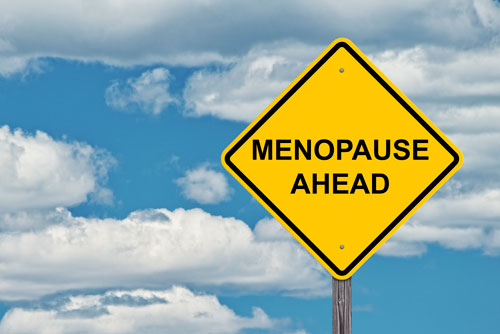
These life changes can be biological, like physical changes from puberty to pregnancy to menopause.
One unwelcome change that may impact women through any – or all – of life’s stages could be major depressive disorder. The Mayo Clinic states that women are nearly twice as likely as men to be diagnosed with depression. The Mayo Clinic says that the higher risk of depression could be associated with hormonal changes, “other biological factors, inherited traits, and personal life circumstances and experiences.”
Some major life events may put a woman at risk for depression more than others.
Infertility and Depression
When a woman decides to become a mother, there’s often nothing she wants more.
That’s why it can be so emotionally devastating for the 12% of women in the United States who have difficulty getting pregnant.
In fact, 17% of women starting reproduction treatment in a study published in Human Reproduction, were diagnosed with depression.
Likewise, being infertile and the process of trying to get pregnant can have a huge psychological impact on women (and their partners).

The medication that women take to increase their chance to become pregnant can create a variety of unwanted side effects. For example, medication prescribed to improve ovulation, may cause “anxiety, sleep interruptions, mood swings, and irritability in women,” according to Harvard Mental Health Letter. Further, “other infertility medications may cause depression, mania, irritability, and thinking problems.”
An article in the North Carolina Medical Journal shares a number of additional factors that can impact mental health during infertility treatment:
- Financial worries – The high cost and frequency of doctors’ appointments and medical procedures can cause financial anxieties and worries about job security
- Self-esteem– The challenges of infertility can have a negative impact on sex life and relationships
- Rollercoaster of emotions – Every month that a woman gets her period and is not pregnant, she could experience a myriad of emotions: “anger, betrayal, guilt, sadness, and even hope”
- Physical demands– “The more physically and emotionally demanding and intrusive patients’ medical treatments become, the higher the reported symptoms of anxiety and depression.”
- Other people’s joy– Hearing of other’s pregnancy news or seeing pregnant women can increase a patient’s anxiety and stress.
Postpartum Depression
A newborn baby can change many things in a mother’s life, both physically and emotionally. Yet, not all of the changes are welcome.
According to PostpartumDepression.com, in the U.S., about 1 in every 9 mothers will suffer from Postpartum Depression (PPD) sometimes called post-natal depression. Yet, the American Academy of Pediatrics estimates half of those suffering are undiagnosed and untreated.
One reason mothers may experience depression after giving birth is the dramatic drop in hormones — including estrogen, progesterone, and other hormones produced by the thyroid gland after birth, The U.S. Office on Women’s Health states. During pregnancy, the production rate of these hormones hits an all-time high. Once the child is born, estrogen and progesterone dramatically decrease to normal levels within the first 24 hours.

- Feeling restless, moody, sad, hopeless, or overwhelmed
- Crying a lot or feeling worthless, guilty, or like a bad mother
- Having thoughts of hurting yourself or the baby
- Not having any interest in the baby, not feeling connected to the baby, or feeling as if your baby is someone else’s baby
- Having no energy or motivation
- Eating or sleeping too little or too much
- Having trouble focusing, remembering things or making decisions
- Losing interest or pleasure in activities you used to enjoy and/or withdrawing from friends and family
- Having headaches, aches and pains, or stomach problems that don’t go away
“New mothers may feel embarrassed, ashamed, or guilty about feeling depressed when they are supposed to be happy,” writes the U.S. Office on Women’s Health. “Any woman can become depressed during pregnancy or after having a baby. It doesn’t mean you are a bad mom. You and your baby don’t have to suffer. There is help. Your doctor can help you figure out whether your symptoms are caused by depression or something else.”
For more information about postpartum depression, read our blog post.
 Menopause and Depression
Menopause and Depression
As women enter their 40s and 50s, menopause presents another significant life change that could lead to depression.
“When women go through sudden hormonal changes like those that come with perimenopause, puberty, postpartum, and even their monthly cycle, they’re at a higher risk for depression,” says Jenifer Payne, M.D., psychiatrist and director of the Women’s Mood Disorders Center at Johns Hopkins Medicine.
Estrogen and progesterone are two hormones that control a woman’s menstrual cycle. These two hormones also influence serotonin, which is “a brain chemical that promotes feelings of well-being and happiness. When hormone levels drop, serotonin levels also fall, which contributes to increased irritability, anxiety and sadness,” according to Johns Hopkins Medicine.
Prioritizing Mental Health During Life Changes
If you suspect you’re experiencing depression during any of life’s changes, it is important to seek professional help. Talking with your doctor or specialist about your depression symptoms, medical history, and other events going on in your life could help them determine how to structure your treatment program.
Women struggling with depression should also know they aren’t alone, and it’s okay to talk about how you feel with others. In addition to social media support groups, there are several online resources that help women going through similar life experiences, including:
- Resolve: The National Infertility Association – this group allows people to find a support group or professional in their area, in addition to support for infertility treatment, adoption, etc.
- Postpartum Support International – this site provides resources for mothers experiencing postpartum depression, as well as advocating for research and legislation to support perinatal mental health
- The North American Menopause Society – a resource for both professionals treating and women experiencing menopause, this group works to promote women’s health during menopause and beyond.
For more information about depression, please visit our blog at https://genesight.com/blog.
Our articles are for informational purposes only and are reviewed by our Medical Information team, which includes PharmDs, MDs, and PhDs. Do not make any changes to your current medications or dosing without consulting your healthcare provider.
The GeneSight test must be ordered by and used only in consultation with a healthcare provider who can prescribe medications. As with all genetic tests, the GeneSight test results have limitations and do not constitute medical advice. The test results are designed to be just one part of a larger, complete patient assessment, which would include proper diagnosis and consideration of your medical history, other medications you may be taking, your family history, and other factors.
If you are a healthcare provider and interested in learning more about the GeneSight test, please contact us at 855.891.9415. If you are a patient, please talk with your doctor to see if the GeneSight test may be helpful.


 Menopause and Depression
Menopause and Depression 

